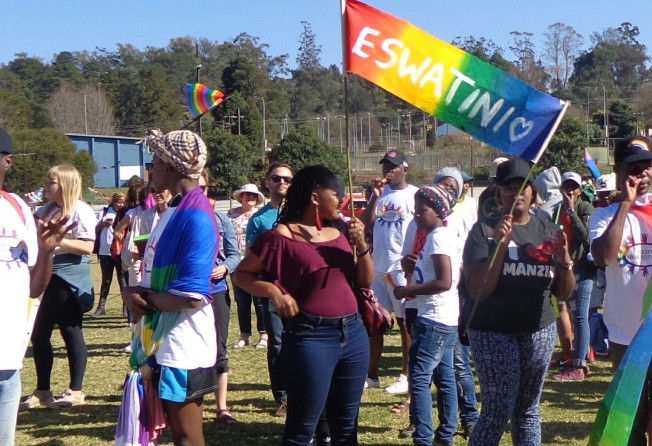Taiwan risks losing more allies as Beijing raises pressure on global stage
Domino effect could claim two in Central America, former Taiwanese foreign minister says

Taiwan risks losing three more allies, with Beijing openly calling for eSwatini – formerly Swaziland – to switch ties to mainland China, and the chance of a domino effect influencing Guatemala and Honduras.
The risk of more diplomatic setbacks for the self-ruled island rose after El Salvador decided to switch recognition to Beijing this week, prompting Taipei to accuse mainland China of pursuing “dollar diplomacy”.
On Wednesday, a mainland official also called on eSwatini, Taiwan’s last ally in Africa, to switch ties before next month’s summit with African leaders in Beijing.
In a sign that Beijing will continue squeezing Taiwan’s international space, Chinese assistant foreign minister Chen Xiaodong said eSwatini did not have relations with Beijing “for reasons that everyone knows”.
“We look forward to and hope that all African nations, with none left behind, can take part in positive China-Africa cooperation, and become a member of the largest family get-together,” Chen said.
“I believe that this is not just the pursuit of China; it is also a widespread shared expectation of African nations.
“I believe that this target can, in the not too distant future, be realised.”
But eSwatini’s foreign minister, Mgwagwa Gamedze, said the kingdom would not switch allegiance.
“They must not play mind games because our relationship with Taiwan is over 50 years [old] so we will not dump them,” Gamedze said on a trip to Taiwan. “We have no desire to change camps since Taiwan has been good to us.”
Taiwanese Foreign Minister Joseph Wu also said Taipei’s ties with eSwatini were “very firm” and the eSwatinian king had vowed not to succumb to any threats or incentives from the mainland.
Taiwan terminated its 85 years of diplomatic ties with El Salvador on Tuesday after the Central America state switched official recognition to Beijing.
It coincided with the end of Taiwanese President Tsai Ing-wen’s nine-day state visit to two of the island’s Latin American allies, Paraguay and Belize, a trip that included two high-profile stopovers in the United States.
Tsai lashed out Beijing, saying its attempts to suppress Taiwan on the international stage highlighted Beijing’s desire for greater influence and strength in the Asia-Pacific – and its threat to regional stability.
Francisco Ou Hung-lian, Taiwan’s foreign minister during the mainland-friendly administration of Tsai’s predecessor Ma Ying-jeou, said the diplomatic break between Taiwan and El Salvador raised the possibility of a domino effect that could see Taipei’s two other Central American allies – Guatemala and Honduras – following suit.
“It is all because Guatemala, Honduras and El Salvador are located in northern Central America and have long been known as the ‘Northern Triangle’. Their relations and national interests are closely linked to each other,” Ou said.
Beijing and Taipei had pushed for regional cooperation programmes in Central America, but Beijing could squeeze Taiwan’s efforts in the region, he said.
“I certainly hope this would not be the case,” he said, urging Tsai’s government to “exercise wisdom”.
Beijing, which considers Taiwan a wayward province subject to eventual union with the mainland, if necessary by force, has tried to make Tsai, of the independence-leaning Democratic Progressive Party, accept the “one China” principle, which Ma recognised.
It has suspended official communication, staged war games near Taiwan, and wooed away five of Taiwan’s allies since Tsai took power in 2016.
Lin Yu-fang, a former Kuomintang legislator, said the Tsai government had to improve ties with Beijing or face an unrelenting attempt to woo away the island’s remaining 17 allies.
Additional reporting by Reuters